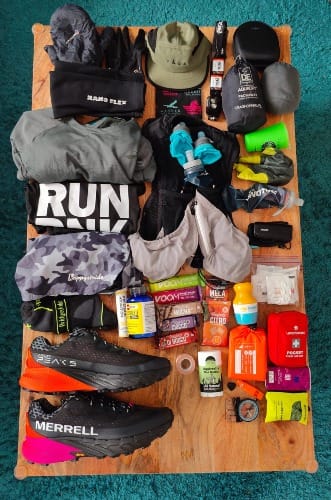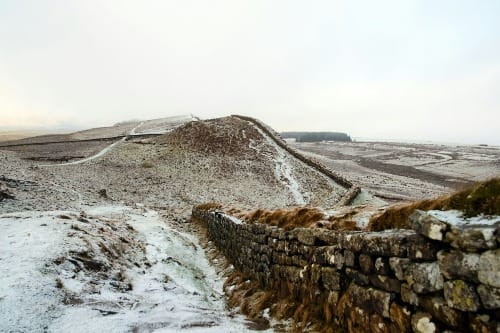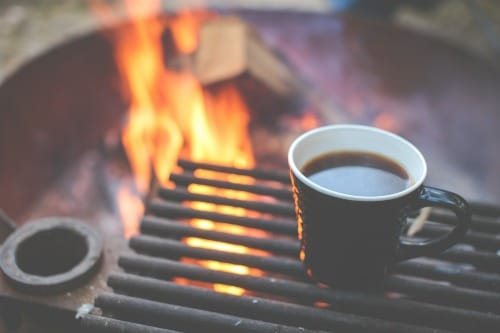Wild Horse 200 Training Plan
How I'm planning to ready my body for this frankly incomprehensible 200 mile race across the boundless beauty of South Wales

It's the 1st of January and, as Chris pointed out here, only 20 weeks until I'll be taking on 200 miles (322 km), with 9,144 meters of elevation gain, across the mountains of South Wales from Chepstow to Rhossili.

Yet even before that I'm got the Hateful 8 Looped Ultra in March, then the first 2 ultras of the 6 race Pegasus Slam in April and May.

I've relaxed my training around Christmas, running for the joy of it rather than trying to target a particular weekly mileage. The break has done me good and allowed me to reassess what's most important to me for 2025.
Now we've entered the New Year I'm keen to jump back on the horse (heh) and build quickly. March is not long away and, from then on, it's a full calendar of events to build, taper for and recover from.
With a belly full of port, pigs in blankets and 4 selection boxes, I better get cracking!
General Principles

As with the Epona 100 my focus will be time on feet, with plenty of hills, trails and days out in the mountains. I did a tonne of hiking last year which helped enormously so will continue that, along with plenty of base building relaxed runs.
With my daughter now at school and me doing drop off / pick up 3 days a week, whilst also promising my partner I'd only commit to 1 morning of training on the weekends, the biggest challenge will be fitting it all in.
To that end a lot of the training will be early mornings, with an eye on managing fatigue and ensuring I'm getting enough sleep. 5am club is calling.
I'm using distance instead of time on the training plan as last year, when using hours on the plan over kms, it didn't quite match how I think about my runs and ended up getting in the way, even though I appreciate the principal of it (easier to commit to 1 hour of running when tired then 10k).
Standard principal of 3 weeks build, 1 week cutback, though I'll note due to the Slam it won't line up exactly like this, with tapering and recovery weeks mixed in there.
I'll max out at 100km / week as my highest volume (almost all base intensity), with my longest training runs being 32km (20 miles) to avoid muscle breakdown.
Committing to 1 hill session and 1 speed work session a week, with special focus on training my legs for the descents. I've found that I'm fatiguing a lot on downhills and need to strengthen my legs so it doesn't happen prematurely.
Finally, I'm actually committing to some strength work this time 😱. I'm a complete beginner, it'll be a learning process for sure, but I'm hoping it will also help reduce fatigue over the distance. Every 2 days using a straight forward kettlebell program (starting with swings, squats, press ups and get ups).
Gear

Shoes: I've gone all in on the Merrell Agility Peak 5. They work well for me, fit nicely with plenty of room for foot swelling, and are cushioned enough to reduce impact over distance. All my trail runs and hikes will be in these. For road, speed work and recovery I've got some plushy Altra Torin 7s.
I'll be carrying poles for all long runs and practising with them where I can. I'm not a huge pole fan, I find them a faff to handle, but they saved the last 30 miles of my first 100 miler, and I think I'll be marrying them by the end of the Wild Horse.
One thing I'm historically bad at is layer management in regards to sweat. As this is such a long race I can't afford to completely soak all my clothes in the first day, so managing my heat levels, practising taking off layers when feeling warm, will all help to preserve kit for when I really need it.
I think I'm going to need a bigger pack. I could get away with a 12 litre Salomon Adv Skin, but with needing to be self sufficient (see later) for a long time I'd like to have a bit more space for extra layers and water.
Fuelling
Last year was a mixed bag on the fuelling side of things, with the two main lessons being 1) I need to drink much more water and 2) I need to eat more real food.
To that end I'm using Active Root Electrolite as a good easy to digest solution to my sodium needs whilst still giving a little carbs in the water. Then I'll be mixing real food and sports products, alternating between them (eg 1 big bite of a tortilla wrap, then 1 gel, then 1 date bar etc).
I'm also taking on Allie Bailey's advice of eating at meal times, having a proper breakfast, lunch and dinner, to keep me going.
All this needs practise on long runs and races to ensure it'll work over the multiple days of the Wild Horse.
Self Sufficiency

The aid stations are ~25 miles apart, which means I've got to carry enough water, food and layers to get myself to the next one. I'm lucky in that I've done a fair amount of longer solo stuff in my time so have a bit of practise with water filters and carrying more supplies, however layer management is one I really need to get better at, as is ensuring I don't get dehydrated by not bringing enough water for a section.
Multi Day Prep

Something I have absolutely no experience with is runs spanning multiple days, the closest was the Epona 100 at 30 hours, but I didn't sleep on that one.
I've never practised sleeping at an aid station, organsing my kit for multiple changes or having back up solutions for when things aren't working out.
Honestly I'm not entirely sure how best to start here: I can't commit to a multi-day race (that would be the ideal, alas) as it's already a busy year of events, so it'll have to be simulating it during training instead (post run naps, double runs over the night with sleep between?).
Week by Week
Below is a breakdown of my current training plan leading up to the big day. Please see here for a live view that will be updated as I go.
It is high volume for sure, I want to condition my legs early before the taper and recovery phases of the upcoming races reduce my mileage.
Realistically the weekly volume will likely drop as fatigue (and life!) set in, so I'm seeing this more as an ideal goal and won't beat myself up if I don't quite hit it.

Closing Thoughts
Interestingly a lot of the prep for the Wild Horse isn't training volume, or strength work, but logistics and admin: how to be self sufficient, what kit to bring, how to manage meals and sleep. I love that, it's a whole new layer on top to think about and get my teeth into.
However there's also the small matter of covering 200 miles on foot and, regardless of how good my personal management is, it is still a scary prospect. I don't know if I can do it physically. I don't know if I can do it mentally. That's why I'm giving it a go.
A friend James said something to me once that stuck with me:
Feeling like you're not ready means you respect the challenge ahead of you
Boy oh boy do I respect this challenge.
